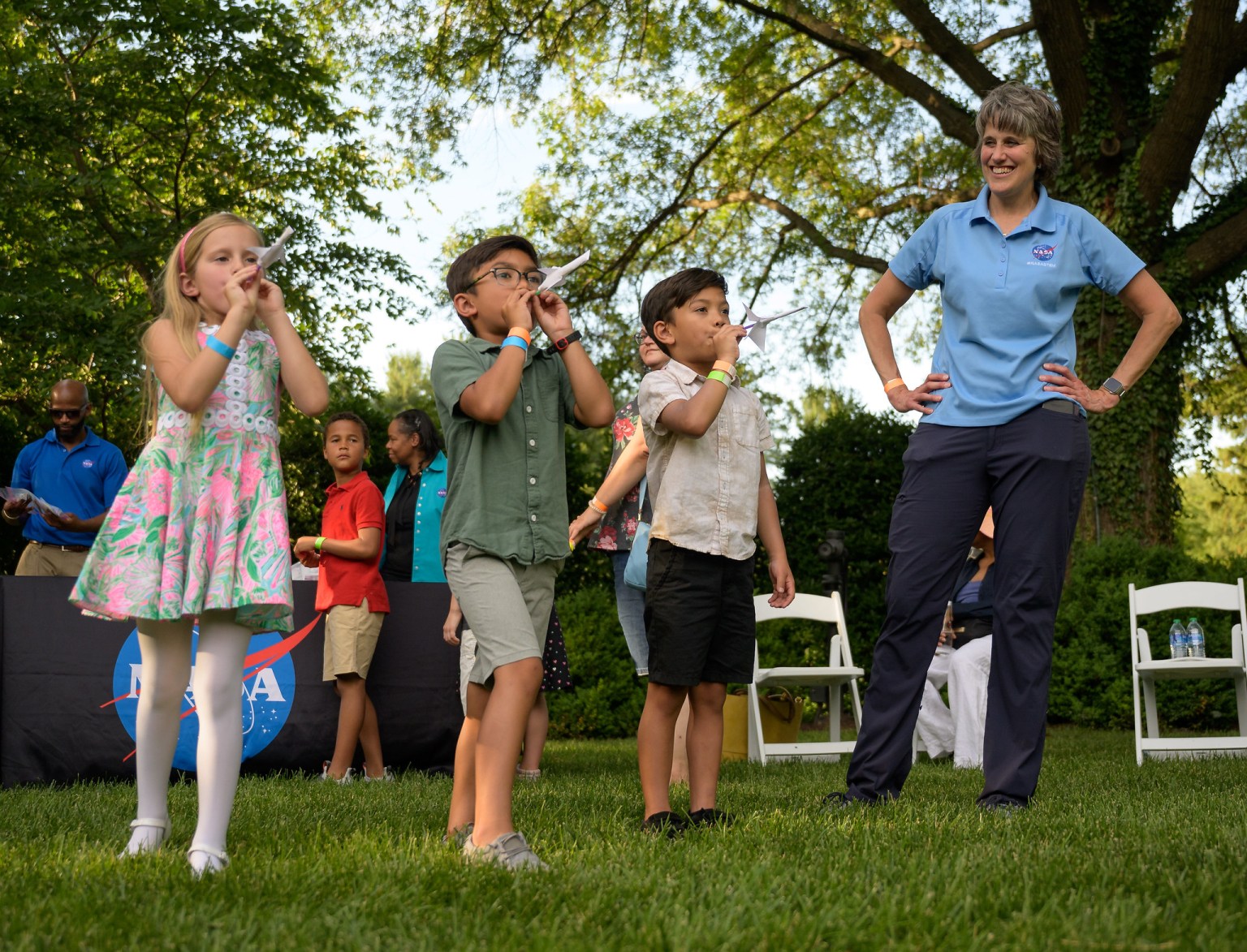Credits:
NASA
The school year has come to an end, and those long summer days are stretching ahead like an open runway. Parents and educators often worry about the “summer slide,” the concept that students may lose academic ground while out of school. But summer doesn’t mean students’ imaginations have to stay grounded!
Are you hoping to slow the summer slide or simply to beat back boredom with some fun options that will also keep young minds active? NASA’s Office of STEM Engagement has pulled together this collection of hands-on activities and interesting resources to set students up for a stellar summer vacation. Read on for ways to keep students entertained and engaged, from learning about NASA’s exciting missions, to exploring the world, to making some out-of-this-world art and more.
Take NASA With You on Summer Vacation
Whether you’re whiling away the hours on a quiet summer day or setting out on a travel adventure, NASA offers fun resources for young explorers to learn while passing the time.
Prepare for air travel with the Four Forces of Flight, a set of four activities explaining the forces that make airplanes work, and NASA’s Junior Pilot Program, in which Orville the flying squirrel teaches youngsters about sustainable aviation that’s making airplanes safer and faster. Students can also learn about NASA’s X-59 experimental aircraft, which will fly faster than the speed of sound while reducing the sound of sonic booms to mere “sonic thumps,” and the whole family can sign up as virtual passengers on NASA’s upcoming flights through the NASA Flight Log.
Traveling to somewhere new? Astronauts living and working in low Earth orbit take many photographs of Earth as it rotates. Explore the world using the Explore Astronaut Photography interactive map, or test geography knowledge through the “Where in the World” Expedition I and Expedition II interactive quizzes.
Of course, some kids prefer to kick back with a good book while on the couch, at the beach, in the backseat, or on a plane – and NASA is ready with reading material! Kids aged 3 to 8 can learn about the Space Launch System (SLS) rocket that will return humans to the Moon with the “Hooray for SLS” children’s book and related activities. Students of all ages are invited to take their imaginations on a lunar adventure with fictional astronaut Callie Rodriguez through the First Woman graphic novel series.
Blast Boredom With STEM Crafts and Creativity
Making, baking, coloring, or drawing – there are plenty of ways to keep kids’ artistic abilities engaged while learning.
Students can download and create their own Artemis illustrations through Learn How to Draw Artemis, featuring the SLS rocket and Orion spacecraft, and younger kids can learn the ABCs of human spaceflight with the Commercial Crew A to Z Activity and Coloring Booklet. Learn about the search for life in the universe while getting creative and colorful with Astrobiology Coloring and Drawing Pages.
If crafts are more appealing, create and launch a soda-straw rocket and use printable templates to build a model of the Orion spacecraft or the Parker Solar Probe. Kids can even create a sundial and use the Sun to tell time on a sunny day.
Finally, summer isn’t complete without a sweet treat, so bake some sunspot cookies. Real sunspots are not made of chocolate, but in this recipe, they are!
Hungry for More?
Don’t let the summer doldrums get you down. NASA STEM offers an entire universe of activities, resources, and opportunities for STEM fans at a variety of grade levels. Check out the NASA STEM Search and discover more NASA STEM categories below.
Keep Exploring

